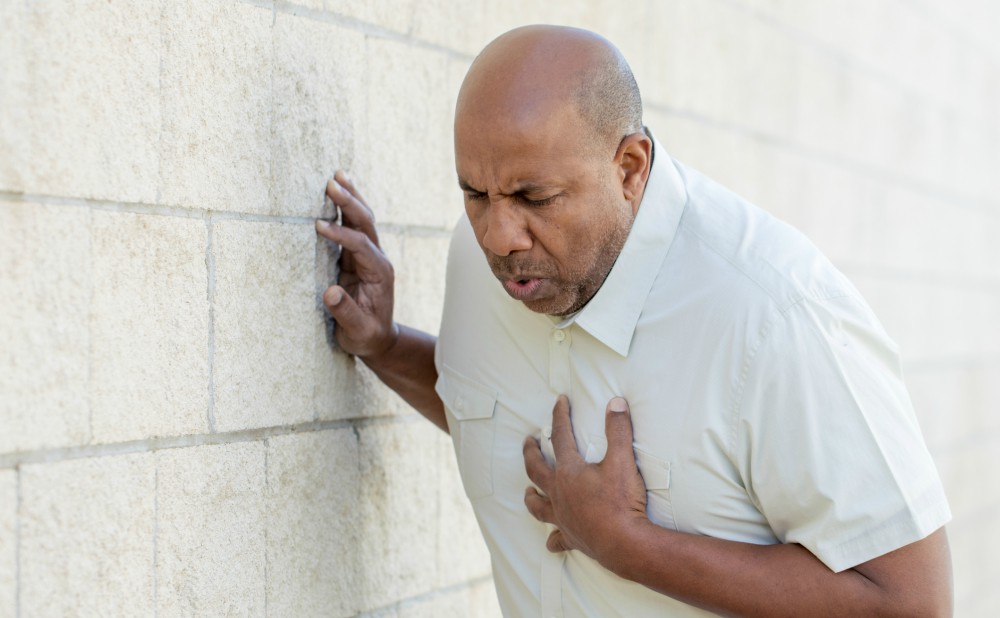Definition: Sudden Cardiac Arrest, (also known as cardiopulmonary arrest or circulatory arrest) is the cessation of normal circulation of the blood due to failure of the heart to contract effectively.[1] Medical personnel can refer to an unexpected cardiac arrest as a sudden cardiac arrest or SCA. A cardiac arrest is different from (but may be caused by) a heart attack, where blood flow to the muscle of the heart is impaired.[2]

Fact: 1000 people die each day from Sudden Cardiac Arrest.
That is one person every two minutes!
Sudden Cardiac Arrest (SCA) is a leading cause of death in the United States, accounting for an estimated 325,000 deaths each year. This is more than the number who die from AIDS, Alzheimer’s, Assault with Firearms, Breast Cancer, Colon Cancer, Fires, Motor Vehicle Accidents, Prostate Cancer and Suicides COMBINED!
In fact, the number of people who die each year from SCA is seven times the number of those who die from breast cancer. Sudden Cardiac Arrest can affect ANYONE at any time at any place. According to OSHA, 13% of all workplace fatalities result from Sudden Cardiac Arrest.
By administering a shock with a defibrillator within two minutes of collapse, the chances of survival of SCA are increased by 90%. The chance of surviving SCA with on help is 5%. Average response time for EMS is 6-12 minutes. Waiting for EMS to respond is not enough! So what are the down sides of having an AED? There are NONE!
Recent court cases show not having an AED may even pose a greater liability. Many corporations have actually been sued for wrongful death and negligence for not having an AED. In fact, there are laws to protect companies and the person administering and or possessing an AED.
The Cardiac Arrest Survival Act of 2000 and the Good Samaritan Protection Act regarding AEDs state that “the act establishes protections from civil liability arising from the emergency use of the device and any person who uses or attempts to use an AED device on a victim of perceived medical emergency is immune from civil liability for any harm resulting from the use or attempted use of such service and in addition, any person who acquired the device is immune from such liability.”
References:
- Wikipedia-http://en.wikipedia.org/wiki/Cardiac_arrest#cite_note-Harrison-0
- 1. ^ a b c Jameson, J. N. St C.; Dennis L. Kasper; Harrison, Tinsley Randolph; Braunwald, Eugene; Fauci, Anthony S.; Hauser, Stephen L; Longo, Dan L. (2005). Harrison’s principles of internal medicine. New York: McGraw-Hill Medical Publishing Division.ISBN 0-07-140235-7.
- 2. ^ Mallinson, T (2010). “Myocardial Infarction”. Focus on First Aid (15): 15. Retrieved 2010-06-08.
- Heart Rhythm Foundation-http://www.heartrhythmfoundation.org/facts/scd.asp

